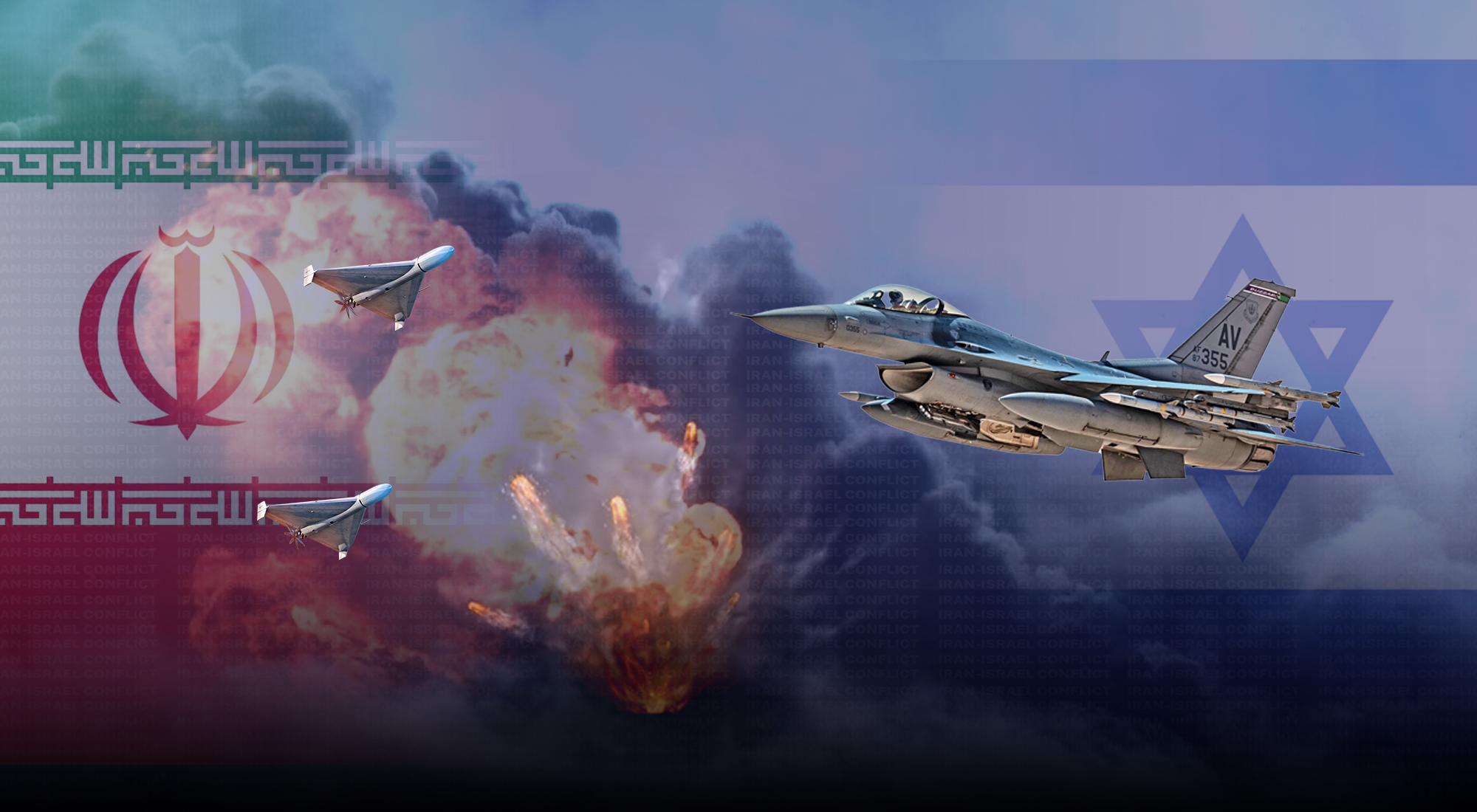An analytical study by TRENDS for Research and Advisory confirmed that the massive Israeli attack targeting Iran on June 13, 2025, represents an unprecedented strategic shift in the nature of the conflict between the two countries and carries profound connotations as well as complex regional and international repercussions.
The study prepared by the Strategic Studies Department at TRENDS. It considered the Israeli military operation, called ‘The Rising Lion,’ crossed all the traditional red lines that had governed the confrontation between Tel Aviv and Tehran for more than four decades.
According to the study, the Israeli attack on Iran constitutes a strategic turning point in the regional conflict and carries profound implications that extend beyond being a mere military strike. Politically, this attack reflects a clear shift in Israeli deterrence doctrine—from a policy of constructive ambiguity and limited strikes to a strategy of large-scale pre-emptive attacks targeting Iran’s military and scientific infrastructure. This indicates that the Israeli strikes were not limited to physical infrastructure but also included the assassination of prominent figures in the Iranian military leadership, including Chief of Staff Mohammad Bagheri and Commander-in-Chief of the IRGC, Hussein Salami. In addition, 25 scientists were targeted, at least 6 of whom were confirmed dead.
The study argues that these directives suggest Israel’s conviction that conventional deterrence is no longer sufficient, and that it is preferable—regardless of the cost—to pursue military and nuclear success against Iran. According to the study, Israel is also investigating a significant intelligence breach within Iran.
The study also indicated that the Israeli operation conveyed a clear message to the international community: Israel would not wait for diplomatic agreements concerning Iran’s nuclear program. Instead, it is prepared to act unilaterally to defend its national security, even if doing so entails the risk of escalation with Iran and its allies.
According to the study, the attack involved more than 200 Israeli fighter planes. It targeted over 100 vital sites deep inside Iran, including nuclear facilities, ballistic missile factories, and high-ranking military headquarters, and resulted in the killing of prominent military leaders, including the Commander-in-Chief of the IRGC, Hussein Salami, and Chief of Staff Mohammad Bagheri, as well as several senior Iranian nuclear scientists.
The study warned that the consequences of this attack might push the region toward a comprehensive escalation, particularly if Iran signals its intent to activate its regional allies—the Popular Mobilization Forces in Iraq and the Houthis in Yemen—as well as the possibility of targeting vital shipping lanes, such as the Strait of Hormuz, which could lead to major disruptions in the global energy market.
The study also indicated that the Israeli operation carried clear messages to the international community that Israel would not wait for diplomatic agreements regarding the Iranian nuclear program, and that it was ready to act alone in defense of its national security, even if this would carry the risk of an escalation with Iran and its allies.
While the study suggested that the escalation would remain within the framework of a limited confrontation, subject to careful calculations by both parties, it did not rule out the possibility of a broader war if diplomatic efforts failed and military operations extended to include the targeting of American interests.



